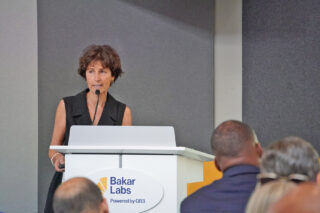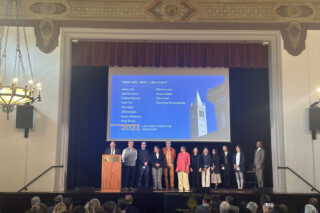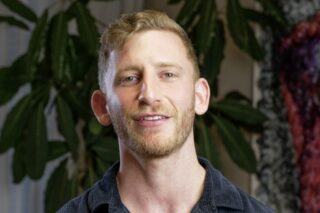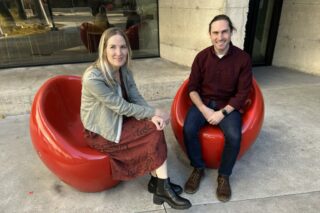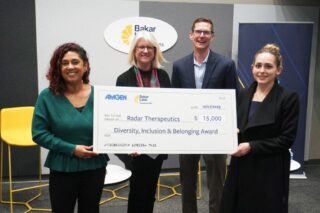Biotech Champion, QB3 Leader Reg Kelly To Retire
From the article by Ron Leuty in the San Francisco Business Times:

Regis Kelly, the longtime leader of a University of California life sciences program priming researchers for business-academic partnerships, is retiring after more than 50 years with the UC system.
A champion for the biotech industry — who laughed at his own misstep of not following UC San Francisco colleague Bill Rutter to startup Chiron Corp. in the early 1980s — Kelly will step down June 30 as executive director of the QB3 program.
David Schaffer, a heavily cited professor of chemical and biomolecular engineering, bioengineering and neuroscience at UC Berkeley and a cofounder of 4D Molecular Therapeutics (NASDAQ: FDMT) of Emeryville, will take the executive director role.
Schaffer, whose research has led to seven other companies, directs the Bakar BioEnginuity Hub, which includes the 50-company Bakar Labs incubator at UC Berkeley.
Kelly came to UCSF in 1971 as an assistant professor and went on to serve as chair of the biochemistry department, director of the cell biology graduate program and director of the hormone research institute. By 1985, he was asked to help convince residents of San Francisco’s Laurel Heights neighborhood to OK the university’s plans to expand its presence there. That effort failed, but Kelly’s colleagues took note, and in 2000, with plans under way to build another campus at Mission Bay, he was named vice chancellor.
In that role, Kelly became a champion of the development of San Francisco’s biotech enclave on the former site of rail yards and warehouses.
Kelly retired from the vice chancellor role in 2004 and pursued one of his loves, sailing. Months later, he got a call from UCSF leaders who asked if he wanted to head QB3, also known as the California Institute for Quantitative Biosciences, a state-funded effort on the campuses of UCSF, UC Berkeley and UC Santa Cruz as a way to support biomedical research and push that research out of academic labs toward commercialization.
QB3 evolved to include a network of incubators to help academics spin out that research into startup companies. It quickly attracted other startups and forged relationships with venture capitalists, just a couple years ahead of the biotech industry beginning a decade-long expansion.
Dozens of companies and the medical device-focused Rosenman Institute launched during Kelly’s QB3 tenure.
The success of QB3 led then-UC President Janet Napolitano to ask Kelly to spread that innovation-to-commercialization gospel to other UC campuses.
“I would never have guessed I had any talent at all in the area of administration,” Kelly said in a 2014 interview. “All I can think is, it’s because everyone else is a lot worse than I am.”
Kelly received a bachelor’s degree in physics from the University of Edinburgh in 1961 and a doctorate in 1967 in biophysics at the California Institute of Technology. He did he postgraduate work in DNA replication under Nobel Prize winner Arthur Kornberg at Stanford University before switching to neurobiology during a second postdoctoral fellowship under the direction of Zach Hall at Harvard University.
In 2013, the smiling, gregarious Scotsman was awarded the Most Excellent Order of the British Empire by Queen Elizabeth II.
“There are few people who are more inspiring, who are more capable of saying, ‘Let’s get out of the foxhole and go toward the machine guns!'” onetime QB3 associate director Douglas Crawford, now managing general partner at venture capital firm Mission BioCapital, said in 2014. “All of us happily get out and follow him.”




